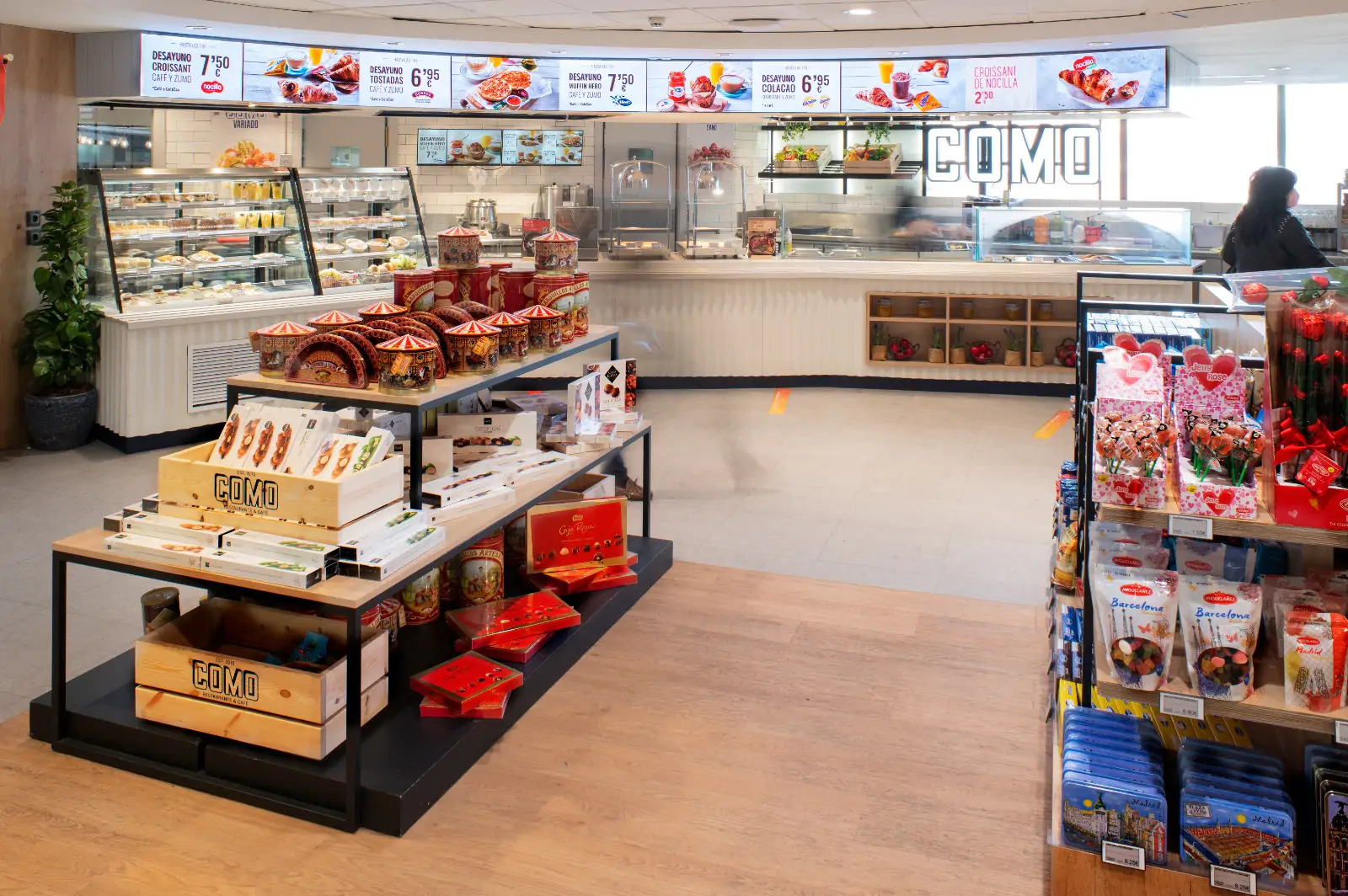The initiative will be implemented in three establishments in Madrid and Barcelona before April 2023 and plans to reach two million travelers in Spain.
Its cornerstone is a 30% reduction in salad containers, which adds up to 44,000 packages a year.
The project will be carried away bya consortium made up of Bûmerang, Ecogots, inèdit, Areas, Clúster Envase y Embalaje State Investment Agency of Government of Valencia and Clúster Foodservice State Investment Agency.
Barcelona, December 1, 2022 – Sustainability today is under the spotlight in corporate strategies, not only because of increasing raw materials prices and climate change, but also because of the entry into force of new international as well as Spanish laws. In the food service sector, the measures promoting a shift to more sustainable packaging are of vital importance due to the large amount of materials and packaging used. Along these lines, the Spanish government has recently passed a new law that introduces a tax on non-reusable plastic packaging, forcing standardization in the strategy for a more sustainable system, and aligning with the waste hierarchy, i.e., prioritizing reuse over recycling whenever possible.
It is in this context of the need to seek new formulas in food service that the Road to Reuse (ROR) project was born, an initiative within the second call from State Investment Agencies of 2022, as part of the Next Generation grants and the Recovery, Transformation, and Resilience Plan of the Ministry of Industry, Trade, and Tourism. The project is scheduled for completion in April 2023.
Road to Reuse (ROR) consists of the implementation of the deposit and refund system in the main food service establishments in areas with travelers through a client-API-microservices architecture (app). The first pilot phase will kick off on December 15th and will be rolled out in COMO establishments, which Areas, a leading food & beverage and travel retail company, manages at the Sants station in Barcelona and at Atocha station in Madrid, as well as the Dots establishment, also located in the Madrid station.
At these three establishments, with an annual traffic of approximately two million customers and a potential of 5.7 million, Areas will sell 30% of its current salads, as one of its best sellers in that category, in returnable packages. It foresees a 30% reduction in salad packaging, equal to more than 44,000 units of salad/year, and savings of up to 1,000 kg of plastic in a year. The project’s main goal is to encourage reusing food packaging in the food service industry. Some of its main measures include:
Reducing the volume of single-use materials in general and of plastic waste by 30% (salad packaging)
Reducing the consumption of plastic in particular: 10% reduction in CO2
Promoting reuse
Generating social and corporate awareness throughout the value chain
The project aims to apply the return-refund system, one of the solutions considered most important and relevant as it allows constantly working with the same packages that are cleaned and refitted for subsequent use as many times as necessary.
To create a closed system to reuse and clean packages we must work hand-in-hand with technology in this process. Through an app that uses the client-API-microservices architecture to process data, we can ensure the traceability of all the packages so their location, status, and maintenance can be monitored.
*Project AEI-010500-2022b-90 is co-financed by the Ministry of Industry, Trade and Tourism (MINCOTUR) through the second calls in 2022 from State Investment Agencies as part of the Next Generation grants and the Recovery, Transformation, and Resilience Plan.
